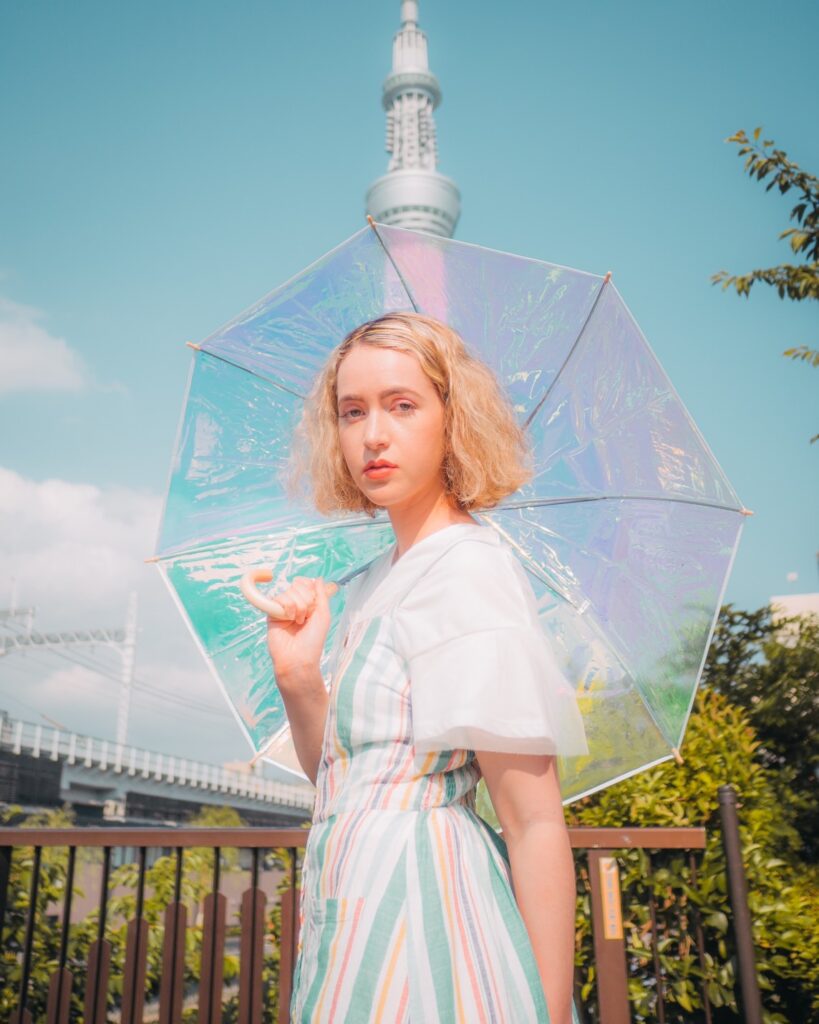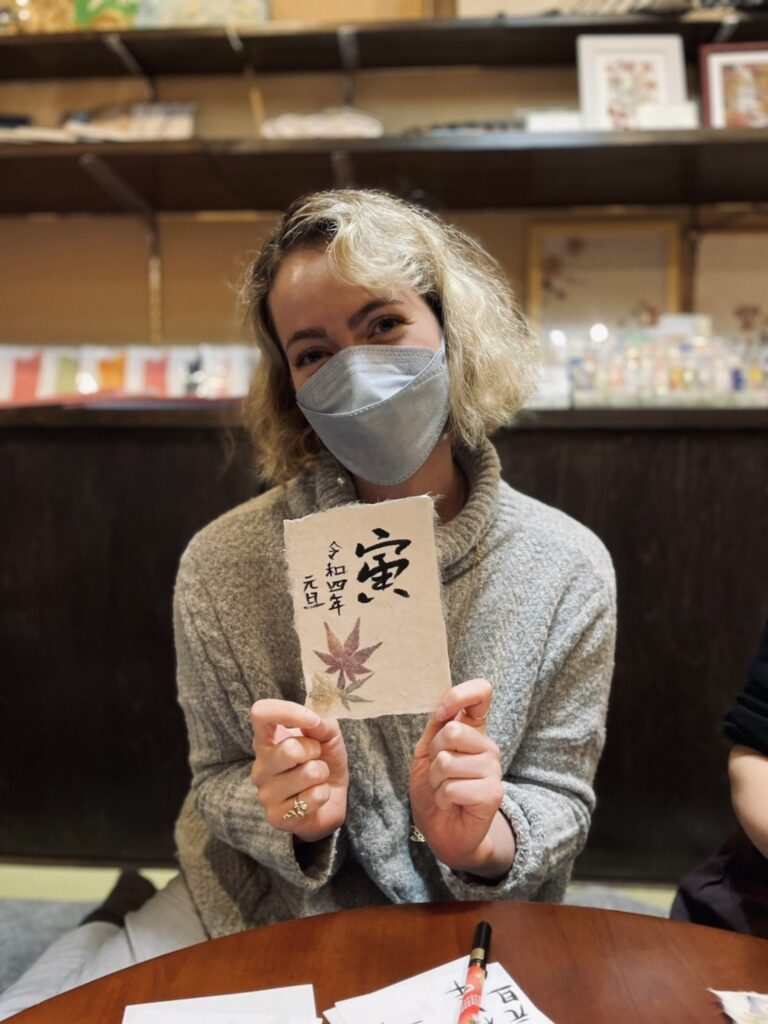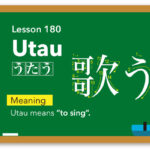
DECEMBER 2022 (VOL.182)
Mariel Stein
- Home country/state /city:New York, USA
- Occupation:Freelancer; YouTuber (On The World Stage)
- Duration of living in Japan:3 Years
- Why do you live in Japan?:I wanted to experience an adventure – I wanted to learn things and have new experiences that I never would have had back in my home country.

Tell us about your activities in Japan?
When I first moved to Japan in August 2019, I was a full-time English teacher at a popular eikaiwa (English Language School); I started my YouTube channel as a hobby and though I enjoyed it, I only viewed it as a way to connect with my family and friends back at home. After living in Kyoto for a year and a half, I desired a change in my life, and since it was difficult to move to a new country because of COVID-19, I relocated to Tokyo instead.
In Tokyo, I keep myself very busy working as an English teacher for children, a model, an actor, and a YouTuber. I am also one of the American cast members on NHK Cool Japan! Many people who move to Japan as teachers are afraid to leave the security of their companies and full-time jobs, but I knew that a freelance lifestyle was what I needed in order to achieve my goals in Japan. My current teaching job is incredibly flexible and my boss is very supportive of my other work.

What is the distinctive difference between US and Japan?
American culture and Japanese culture are quite the opposite. In America, people communicate directly and frequently engage in discourse about politics, social issues, and even religion. In Japan, communication is incredibly (and often mysteriously) indirect. In addition to this, many topics are taboo. For foreigners who come from countries with direct styles of communication, learning how to “read the room” and understand Japanese people is a skill that must be acquired in order to thrive. Understanding indirect communication can be frustrating at first, but I think that it’s important to respect the communication style of Japan. Even though I am American, I am very sensitive and don’t like to argue or openly disagree with others; I think that Japanese culture suits me really well.
What do you miss about US living in Japan?
I think what I miss most are family gatherings and a stable sense of community. I know that it takes time to build a community anywhere, but even when I find people that I care about in Japan, it can be difficult to connect everyone into one circle – particularly in Tokyo. Schedules often don’t match up, the city is sprawling, and most people I know don’t have the luxury of living alone – most people my age live in share houses. Additionally, because we live abroad, there is a sense of uncertainty that lingers over our friendships with other foreigners; it’s difficult to know for sure if we will stay in Japan forever or eventually return to our maternal countries.
What are the most impressive things to you in Japan?
Without a doubt, I am most impressed by how safe I feel in Japan. Every day when I go outside, I feel grateful to live in a country where young children can safely take the train or walk down the street alone. Japanese society is built on a foundation of mutual trust.
What are the most impressive things to you in Japan?
Without a doubt, I am most impressed by how safe I feel in Japan. Every day when I go outside, I feel grateful to live in a country where young children can safely take the train or walk down the street alone. Japanese society is built on a foundation of mutual trust.

Which places in Japan do you recommend that foreigners see?
I may be biased because I used to live there, but everyone who visits Japan must visit Kyoto. I think that Tokyo is the creative and innovative brain of Japan, but Kyoto will always be the heart of the country where Japanese culture is most pure.
What parts of Japanese culture do you recommend that foreign people try to experience?
Do some research on festivals in Japan! Japanese festivals usually take place at temples and shrines and have many different food stalls. Attending a Japanese festival is a great way to satisfy one’s stomach and cultural curiosity.


V




